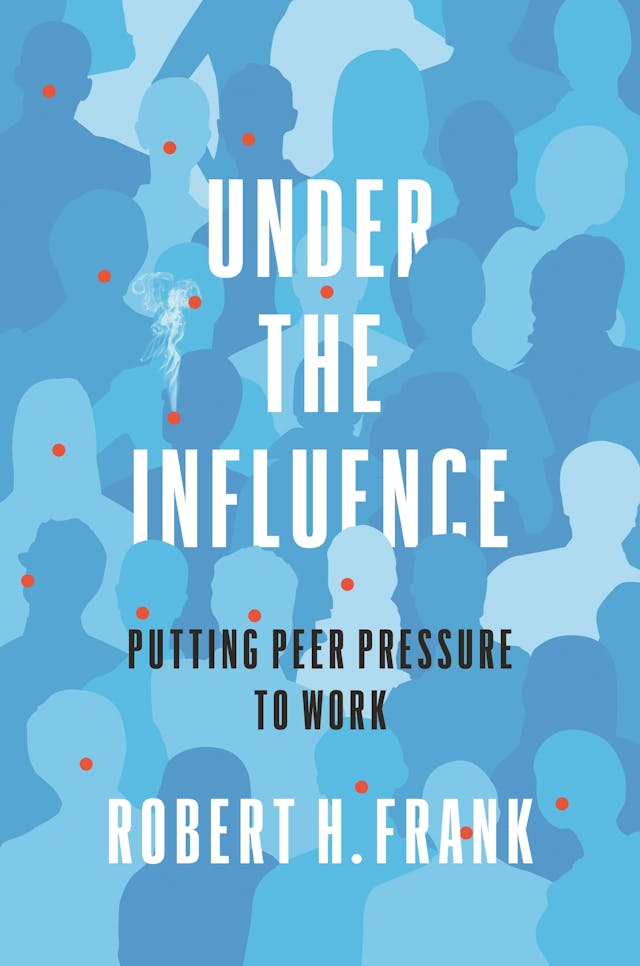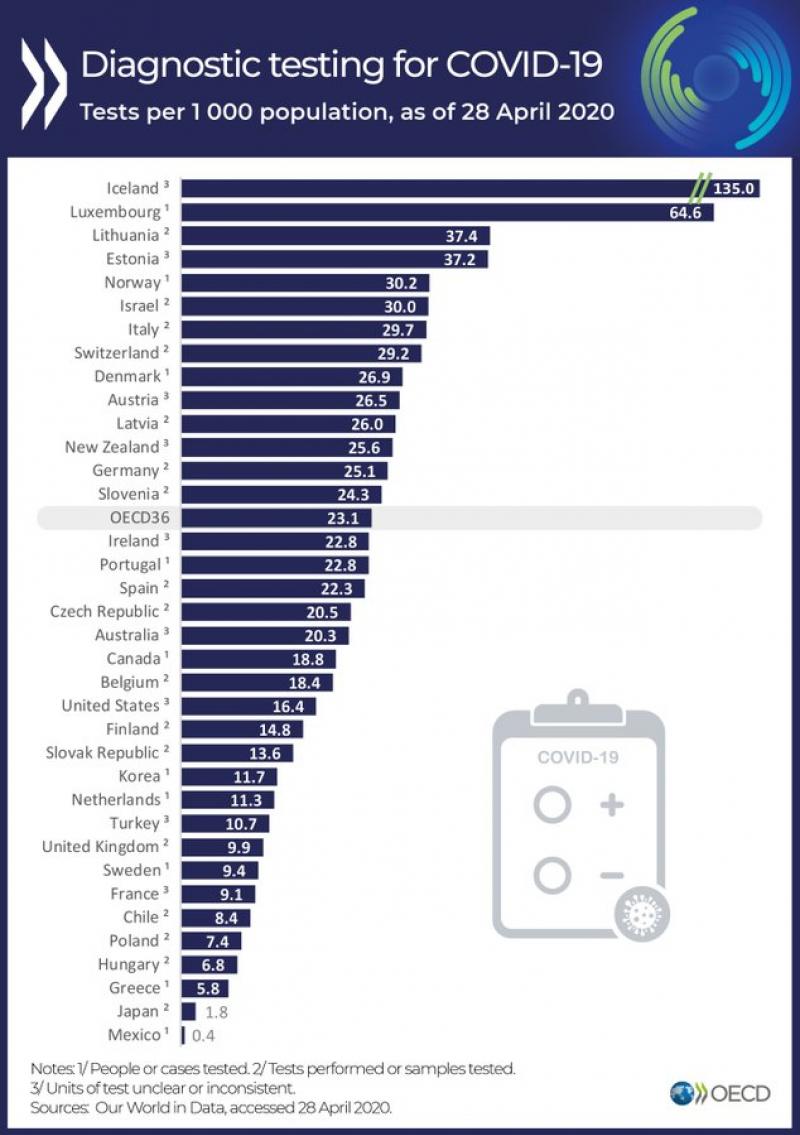Sesión científica celebrada en la sede de la Reial Acadèmia de Medicina de les Illes Balears el 9 de julio de 2019 a cargo del profesor Francisco Juan Martínez Mojica, microbiólogo, investigador y profesor español titular del Departamento de Fisiología, Genética y Microbiología de la Universidad de Alicante.
11 de maig 2020
CRISPR Technology explained by Dr. Martínez Mojica
El impacto de la tecnología CRISPR en biomedicina.
Sesión científica celebrada en la sede de la Reial Acadèmia de Medicina de les Illes Balears el 9 de julio de 2019 a cargo del profesor Francisco Juan Martínez Mojica, microbiólogo, investigador y profesor español titular del Departamento de Fisiología, Genética y Microbiología de la Universidad de Alicante.
Sesión científica celebrada en la sede de la Reial Acadèmia de Medicina de les Illes Balears el 9 de julio de 2019 a cargo del profesor Francisco Juan Martínez Mojica, microbiólogo, investigador y profesor español titular del Departamento de Fisiología, Genética y Microbiología de la Universidad de Alicante.
10 de maig 2020
The narrative of pandemics
Pandemics, Publics, and Narrative
This is a book that explains the lived experience of general publics affected by the 2009 swine flu pandemic, establishes an interesting narrative approach to health communications and public health. Good read for nowadays.
This is a book that explains the lived experience of general publics affected by the 2009 swine flu pandemic, establishes an interesting narrative approach to health communications and public health. Good read for nowadays.
In what follows we draw out three key lessons for public engagement with pandemic threats: persuasion narrative and its implications; how individuals addressed themselves to biopolitical citizenship in light of the 2009 pandemic, and; biopolitical metaphors— contagion and immunity— and their association with embodied individualism. We also consider a more general question of what our research suggests for the turn to narrative in public health with reference to the global nature of pandemics.Just like now.
09 de maig 2020
The transformative power of a pandemic
Humanitarian Economics
War, Disaster and the Global Aid Market
From the chapter of Disaster Economics
These are the remaining chapters.
War, Disaster and the Global Aid Market
From the chapter of Disaster Economics
Referring to the notion of creative destruction developed by the Austrian economist Joseph Schumpeter in the mid-twentieth century,several scholars argue that disasters stimulate economic growth in the long run. Disaster precipitates the destruction of the old and thus makes way for the new faster than would otherwise be the case (see Chapter 7 on the transformative power of disasters). Based on a Schumpeterian model of endogenous growth, Aghion and Howitt find that disaster accelerates capital replacementWe still don't know if this will be the case with our pandemic.
associated with technological change, which increases productivity and generates a positive economic impact. Under endogenous growth theory, the destruction brought about by disasters can be seen as a form of accelerated capital depreciation that leads to the rapid adoption of new technology and infrastructure upgrading, which increases productivity. This is part of the theoretical foundations behind building back better (BBB).
These are the remaining chapters.
Introduction
1.Reason, Emotion and Compassion
2.The Humanitarian Market
3.War Economics
4.Terrorism Economics
5.Disaster Economics
6.Survival Economics
7.The Transformative Power of Humanitarian Crises
08 de maig 2020
Stop covid with CRISPR Diagnostics
With Crispr, a Possible Quick Test for the Coronavirus
Sherlock's quick, CRISPR-based coronavirus test gets emergency nod
STOP COVID
Point-of-care testing for COVID-19 using SHERLOCK diagnostics
Great!
Sherlock's quick, CRISPR-based coronavirus test gets emergency nod
STOP COVID
Point-of-care testing for COVID-19 using SHERLOCK diagnostics
Great!
The FDA granted its first emergency authorization for a CRISPR-based test for COVID-19, developed by Sherlock Biosciences, designed to turn results around in about an hour compared to the four to six hours needed for other molecular diagnostics.
The test is based on the company’s namesake technology, SHERLOCK, short for Specific High-sensitivity Enzymatic Reporter unLOCKing, a Cas13a-based CRISPR system that targets RNA rather than DNA. It looks for an RNA sequence specific to SARS-CoV-2, the virus that causes COVID-19, in patient samples taken from the upper airways with a swab or from airways in the lungs known as bronchoalveolar washing.
“If it’s there, it attaches to the Cas13 enzyme and activates it, which leads to the chewing up and cleaving of RNA probes,” Sherlock CEO Rahul Dhanda told FierceMedTech. When cleaved, those RNA molecules release a fluorescent signal to show the virus is present.
07 de maig 2020
Gates on the pandemic
Responding to Covid-19 — A Once-in-a-Century Pandemic?
Bill Gates says in NEJM:
Bill Gates says in NEJM:
The long-term challenge — improving our ability to respond to outbreaks — isn’t new. global health experts have been saying for years that another pandemic whose speed and severity rivaled those of the 1918 influenza epidemic was a matter not of if but of when. The Bill and Melinda Gates Foundation has committed substantial resources in recent years to helping the world prepare for such a scenario.
Finally, governments and industry will need to come to an agreement: during a pandemic, vaccines and antivirals can’t simply be sold to the highest bidder. They should be available and affordable for people who are at the heart of the outbreak and in greatest need. Not only is such distribution the right thing to do, it’s also the right strategy for short-circuiting transmission and preventing future pandemics. These are the actions that leaders should be taking now. There is no time to waste.
Edward Hopper
06 de maig 2020
Paying providers and adjusting for quality and performance
Payment Methods and Benefit Designs: How They Work and How They Work Together to Improve Health Care
Value-Based Provider Payment Initiatives Combining Global Payments With Explicit Quality Incentives: A Systematic Review
Figure 1. Core components and associated design features of a VBP model combining global base payments with explicit quality incentives.
Value-Based Provider Payment Initiatives Combining Global Payments With Explicit Quality Incentives: A Systematic Review
Figure 1. Core components and associated design features of a VBP model combining global base payments with explicit quality incentives.
In the coming years, VBP models stimulating value in a broad sense will likely continue to gain ground, as the quest toward VBHC proceeds. This article demonstrates that VBP models consisting of global base payments combined with explicit quality incentives are operationalized in practice in various ways. In addition, our results show that this particular VBP model has the potential to improve value and contribute to VBHC. Going forward, this article may serve as inspirational material for those interested in developing new or improving on existing VBP models.
05 de maig 2020
Behavioral contagion
So much has been written on behavioral economics and nudging, and I always think about the implications. Robert Frank in his new book provides new insights to understand the behavioral contagion among all of us. He says:
The argument I will defend in this book, implicit in several of the examples already discussed, is summarized in the following seven premises:
1. Context shapes our choices to a far greater extent than many people consciously realize.
2. The influence of context is sometimes positive (as when people become more likely to exercise regularly and eat sensibly if they live in communities where most of their neighbors do likewise).
3. Other times, the influence of context is negative (as when people who live amidst smokers become more likely to smoke, or when neighboring business owners erect ugly signs).
4. The contexts that shape our choices are themselves the collective result of the individual choices we make.
5. But because each individual choice has only a negligible effect on those contexts, rational, self-interested individuals typically ignore the feedback loops described in premise 4.
6. We could often achieve better outcomes by taking collective steps to encourage choices that promote beneficial contexts and discourage harmful ones.
7. To promote better environments, taxation is often more effective and less intrusive than regulation.
Among behavioral scientists, the first five of these premises are completely uncontroversial. It is only 6 and 7 that provoke disagreement. Regarding 6, even when everyone acknowledges that behavioral contagion causes harm, as in the smoking example, it is often hard to reach consensus on collective actions that would modify the contexts that shape our actions. In part, the difficulty is that individual incentives and collective incentives often diverge so sharply. But objections to premise 6 are also rooted in the long American tradition of hostility toward regulations generally. Nor can there be any presumption that regulation always improves matters. Markets sometimes fail to deliver optimal results, but government interventions are also imperfect. Premise 7 is controversial simply because many people dislike being taxed. Yet a moment’s reflection reveals that the only interesting questions in this domain concern not whether we should tax but rather which things we should tax and at what rates. Whether you’re a small-government conservative or an expansive progressive, tax revenue is necessary to pay for valued public services.A must read. The book has clear messages for professionalism in Medicine and for pandemics.
04 de maig 2020
How testing market fails during a pandemic
The evidence of market failure during this pandemic is everywhere. Shortages, excessive prices, unavailable capacity...It is a clear example of mismatch between demand and supply. The question is, Can we do it otherwise?. In this article there are some hints for resource allocation for testing activities.
Globally, the development of diagnostics has long been left to markets, many of which are highly specialized. But while there are diagnostics markets for major infectious and non-infectious diseases, and even neglected tropical diseases, there is none for pandemic diseases.
Governments can of course counteract market deficiencies, but the commonly used mechanisms still require a trace level of demand, which does not exist for pandemic-disease diagnostics until the brink of an outbreak. And national governments, subject as they are to political and ideological constraints, cannot be relied upon always to create markets with the same swiftness demonstrated by South Korea. Reactive market creation is therefore not the way forward.
Instead, national governments should support the creation of a global coordinating platform for pandemic preparedness. Such a platform can take the lead in raising and pooling capital to channel toward rapid development, production, and distribution of diagnostics for pandemic diseases.
The blueprint for such a platform already exists. The Coalition for Epidemic Preparedness Innovations (CEPI) is a coordinating mechanism focused on advancing vaccine development and facilitating clinical validation, mass-scale manufacturing, and stockpiling. By reducing uncertainty and minimizing disruptions, CEPI makes vaccine markets more secure, accessible, and dynamic.
CEPI relies on both traditional financing (large grants from governments and foundations) and innovative financing (the returns from instruments like the International Finance Facility for Immunization, or IFFIm). In the event of an outbreak, CEPI uses instruments like Advanced Market Commitments (AMCs) or volume guarantees – which can be structured through mechanisms like the Global Health Investment Fund and InnovFin, or as conditional pledges to IFFIm and Gavi, the Vaccine Alliance – to enable it to scale up production quickly.
This blueprint can easily be replicated for diagnostics. All that is needed is a specialized entity – an institution or initiative that couples research and development with market access.
03 de maig 2020
Health vs. wealth in a pandemic
HEALTH VS. WEALTH? PUBLIC HEALTH POLICIES AND THE ECONOMY DURING
COVID-19
A NBER paper says:
COVID-19
A NBER paper says:
A pandemic can impact an economy in many ways: reductions in people’s willingness
to work, dislocations in consumption patterns and lower consumption, added stress on the financial system, and greater uncertainty leading to lower investment. These are
respectively referred to as (labor) supply shocks, demand shocks, financial shocks and
uncertainty shocks. Connected economies and epidemiological communities also move in synch. Even a healthy economy, or an economy that has not mandated a shutdown, may feel the impact of external events. With the exception of the 1918 influenza, recent
pandemics have neither had as large of a global impact, nor has there been as much real
time data available to empirically assess the economic and public health impact of NPIs.
We study outcomes during the Covid-19 pandemic.
We have three main results. First, our analysis shows NPIs may have been effective
in slowing the growth rate of confirmed cases of Covid-19 but not in decreasing the growth rate of cumulative mortality. Second, we find evidence of spillovers. NPIs may have impacts on other jurisdictions. Finally, there is little evidence that NPIs are associated with larger declines in local economic activity than in places without NPIs.
02 de maig 2020
Against patents for the current pandemic
Imagine a world in which a global network of medical professionals monitored for emerging strains of a contagious virus, periodically updated an established formula for vaccinating against it, and then made that information available to companies and countries around the world. Moreover, imagine if this work were done without any intellectual-property (IP) considerations, and without pharmaceutical monopolies exploiting a desperate public to maximize their profits.This is exactly what Nobel prize David Stiglitz says in his op-ed in Project Syndicate. Absolutely agree.
This may sound like a utopian fantasy, but it is actually a description of how the flu vaccine has been produced for the past 50 years. Through the World Health Organization’s Global Influenza Surveillance and Response System, experts from around the world convene twice a year to analyze and discuss the latest data on emerging flu strains, and to decide which strains should be included in each year’s vaccine.
For too long, we have bought into the myth that today’s IP regime is necessary. The proven success of GISRS and other applications of “open science” shows that it is not. With the COVID-19 death toll rising, we should question the wisdom and morality of a system that silently condemns millions of human beings to suffering and death every year.
It’s time for a new approach. Academics and policymakers have already come forward with many promising proposals for generating socially useful – rather than merely profitable – pharmaceutical innovation. There has never been a better time to start putting these ideas into practice.
Hopper
01 de maig 2020
Austerity is not for nowadays
Austerity When It Works and When It Doesn’t
If somebody want to know what happens with austerity policies, then this is the book to read.
PS. Alberto Alessina passed away recently.
If somebody want to know what happens with austerity policies, then this is the book to read.
The term “austerity” indicates a policy of sizeable reduction of government
deficits and stabilization of government debt achieved by means
of spending cuts or tax increases, or both. This book examines the costs
of austerity in terms of lost output, what types of austerity policies can
achieve the stated goals at the lowest costs, and the electoral effects for
governments implementing these policies.
Why Austerity?
If governments followed adequate fiscal policies most of the time, we
would almost never need austerity. Economic theory and good practice
suggest that a government should run deficits during recessions—when
tax revenues are low and government spending is high as a result of
the working of fiscal stabilizers such as unemployment subsidies—and
during periods of temporarily high spending needs, say because of a natural
calamity or a war.
PS. Alberto Alessina passed away recently.
30 d’abril 2020
Surveillance, censorship and manipulation (using covid as excuse)
The Information Trade. How Big Tech Conquers Countries, Challenges Our Rights, and Transforms Our World
What does google know about you?. Right now they have developed a new API with Apple to control citizen location and contacts. This is the perfect tool for the end of privacy with the excuse of a pandemic.
In a recent book, all these strategies are clearly explained, specially how they defeat the democracy.
And the film, The creepy line, adds more concern on the same issue.
What does google know about you?. Right now they have developed a new API with Apple to control citizen location and contacts. This is the perfect tool for the end of privacy with the excuse of a pandemic.
In a recent book, all these strategies are clearly explained, specially how they defeat the democracy.
WE’RE IN A WORLD STILL DOMINATED BY NATION-STATES, BUT INCREASINGLY influenced by the actions of net states. Nation-states continue to own the physical territories within their borders, but net states wield significant power both within and across country space, guiding events that affect us both on an individual and on a global level. Therefore, we need to get smart about what net state power really looks like, and quick.
One country that’s excelling in its efforts to do so is Denmark. In 2017, it opened a door that has the potential to radically alter our existing geopolitical order: it appointed a new ambassador to capital-T Tech itself. Ambassador Casper Klynge is the world’s first-ever tech ambassador. His mandate: to establish diplomatic relations between Copenhagen and Tech. And what exactly that looks like is all fresh territory, yet to be discovered. Fittingly, his office operates as a virtual embassy, with three physical manifestations: one in his home base of Copenhagen and two in the most powerful tech hubs on Earth—Silicon Valley, California, and Beijing, China.
And the film, The creepy line, adds more concern on the same issue.
29 d’abril 2020
28 d’abril 2020
Vaccines for all
How to Develop a COVID-19 Vaccine for All
Messages from Mazzucato and Torreele:
PS. Masks, tests, treatments, vaccines – why we need a global approach to fighting Covid-19 now
Bill Gates dixit:
Messages from Mazzucato and Torreele:
The first, critical step is to adopt a mission-oriented approach that focuses both public and private investments on achieving a clearly defined common goal: developing an effective COVID-19 vaccine(s) that can be produced at global scale rapidly and made universally available for free. Realizing this aim will require firm rules regarding intellectual property (IP), pricing, and manufacturing, designed and enforced in ways that value international collaboration and solidarity, rather than competition between countries.
Second, to maximize the impact on public health, the innovation ecosystem must be steered to use collective intelligence to accelerate advances. Science and medical innovation thrives and progresses when researchers exchange and share knowledge openly, enabling them to build upon one another’s successes and failures in real time.
Third, countries must take the lead in building and buttressing manufacturingcapabilities, particularly in the developing world. While an effective COVID-19 vaccine probably will not be available for another 12-18 months, a concerted effort is needed now to put in place the public and private capacity and infrastructure needed to produce rapidly the billions of doses that will be required.
Because we don’t know yet which vaccine will prove most effective, we may need to invest in a range of assets and technologies. This poses a technological and financial risk that can be overcome only with the help of entrepreneurial states backed by collective, public-interest-driven financing, such as from national and regional development banks, the World Bank, and philanthropic foundations.
Finally, conditions for ensuring global, equitable, and affordable access must be built into any vaccine-development program from the start. This would allow public investments to be structured less like a handout or simple market-fixer, and more like a proactive market-shaper, driven by public objectives.
PS. Masks, tests, treatments, vaccines – why we need a global approach to fighting Covid-19 now
Bill Gates dixit:
I’m a big believer in capitalism – but some markets simply don’t function properly in a pandemic, and the market for lifesaving supplies is an obvious example. The private sector has an important role to play, but if our strategy for fighting Covid-19 devolves into a bidding war among countries, this disease will kill many more people than it has to.
Edward Hopper. Cape Cod Morning, 1950. Smithsonian American Art Museum
Subscriure's a:
Missatges (Atom)












